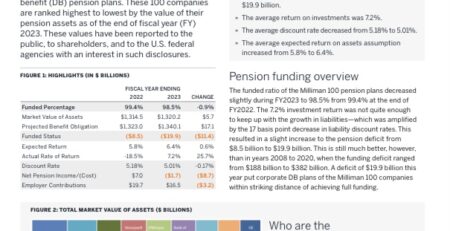Conflicts and Opportunities for Pension Fiduciaries in the ESG Environment
By Susan N. Gary
Acting as prudent investors, pension managers should consider financially material factors that affect the risk/return profile of funds. Material environmental, social, and governance (ESG) factors may affect financial performance by identifying opportunities and risk, so it would seem prudent to consider those factors when making decisions in the best interests of plan beneficiaries. In June 2020 the Department of Labor (DOL) proposed a rule that appeared to be an attempt to curtail consideration of ESG factors. The proposal was based on a misunderstanding of current investment strategies, and it could have had a detrimental effect on the security of retirement funds. After receiving hundreds of negative comments, the DOL revised the proposal and issued a final rule (the 2020 Rule) which addressed some, but not all, of the concerns. After the change of administrations, the DOL announced that it would not enforce the rule until it reconsidered the guidance. On October 14, 2021, the DOL issued a Proposed Rule, revising the 2020 Rule. The 2021 guidance should help address the confusion over the proper use of financially material ESG information, but uncertainty regarding proper fiduciary behavior of those who manage pensions persists. This article explains why the confusion exists and why pension fiduciaries should consider climate change and other ESG factors in their investment decision-making process.
The article describes the fiduciary duties that apply to those who manage pension funds. The article then discusses the consideration of climate change and other ESG factors in investment decision making and attempts to dispel misunderstandings related to ESG and fiduciary duties. The article reviews DOL guidance from 1994 forward, explains why so many commenters expressed concern over the 2020 proposal, and analyzes the 2021 Proposed Rule. The article argues that a prudent pension manager should invest for the long-term financial benefit of all pension participants and their beneficiaries. To do so, a prudent manager should consider climate change and other ESG factors to address systemic risks to the portfolio and to protect the long-term interests of participants and beneficiaries.
Source: SSRN
211 views










